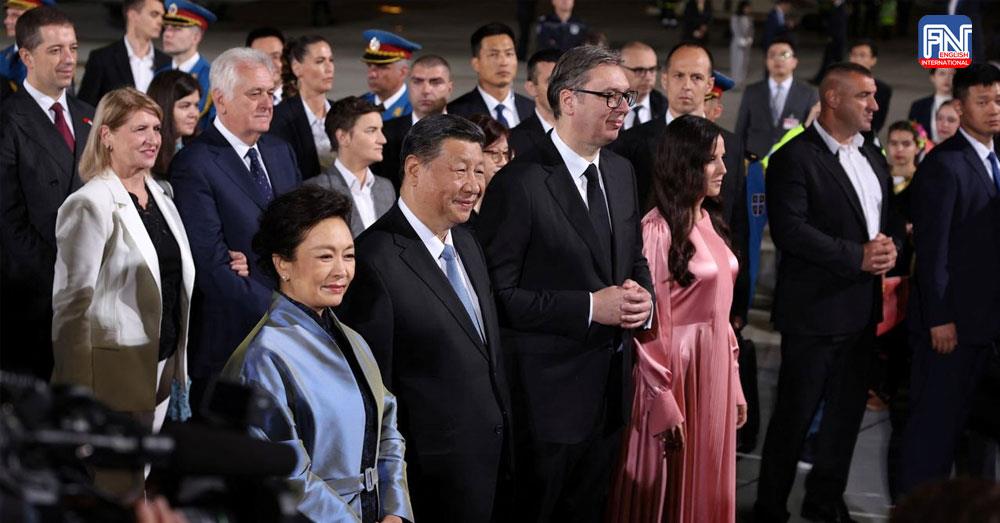BELGRADE, May 7 (Reuters) - Chinese President Xi Jinping arrived in Serbia on Tuesday evening escorted by MIG-29 jets in a tightly secured visit coinciding with the 25th anniversary of the NATO bombing of China's embassy in which three Chinese journalists were killed.
Belgrade, after France, is the second stop on Xi's first visit to Europe in five years, which also includes Hungary. In Serbia, which is seen as China's most important partner in the Balkans, Xi is expected to discuss China´s multi-billion investment in the country and possible new deals.
Serbian President Aleksandar Vucic and government officials welcomed Xi at the Belgrade airport, where he was greeted by a military guard of honor and folk dancers. The two leaders will hold a meeting on Wednesday.
On May 7, 1999, 20 Chinese nationals were wounded in the NATO attack, which prompted outrage in China and an apology from then U.S. President Bill Clinton.
The embassy was hit during a campaign against the then Yugoslavia to force late Serbian strongman Slobodan Milosevic to end a crackdown on ethnic Albanians in Kosovo.
"The Chinese people appreciate the peace but will never allow that a historic tragedy repeats itself," Xi said in an opinion article in the daily Politika on Tuesday.
"The friendship between China and Serbia which is soaked in blood that the two peoples spilled together has become a joint memory of the two peoples and will encourage both parties to make together huge steps forward," Xi said.
The Belgrade streets were decorated with Chinese flags and placards as thousands of police officers were deployed to secure Xi and his 400-member entourage, the highest-level visit by a foreign leader in years.
Xi is visiting Serbia after France, where President Emmanuel Macron and EU Commission chief Ursula von der Leyen pressed him to ensure more balanced trade with Europe and use his influence on Russia to end the war in Ukraine.
During his first visit to Belgrade in 2016, the two countries signed a strategic partnership. Last year, Vucic signed 18 agreements with Xi in Beijing, including a free trade deal that should become operational in July.
Both leaders insist on an ironclad partnership between their countries. Along with Hungary, which is Xi´s next stop, Serbia is Europe's firmest supporter of China’s Belt and Road Initiative.
China runs mines and factories across Serbia and has lent billions for roads, bridges and new facilities, becoming Serbia's key partner in much-needed infrastructure development.
Observers say Xi's choice of Serbia and Hungary is designed to pull closer two European countries that are pro-Russia and large recipients of Chinese investment. Serbia’s Western partners view the country as a Chinese hub at the gateway to the EU.
In 2023, China was Serbia’s second-largest trading partner after the EU with a total trade exchange of $6.1 billion and among its top five investors, according to the national investment agency.

Photo from Reuters